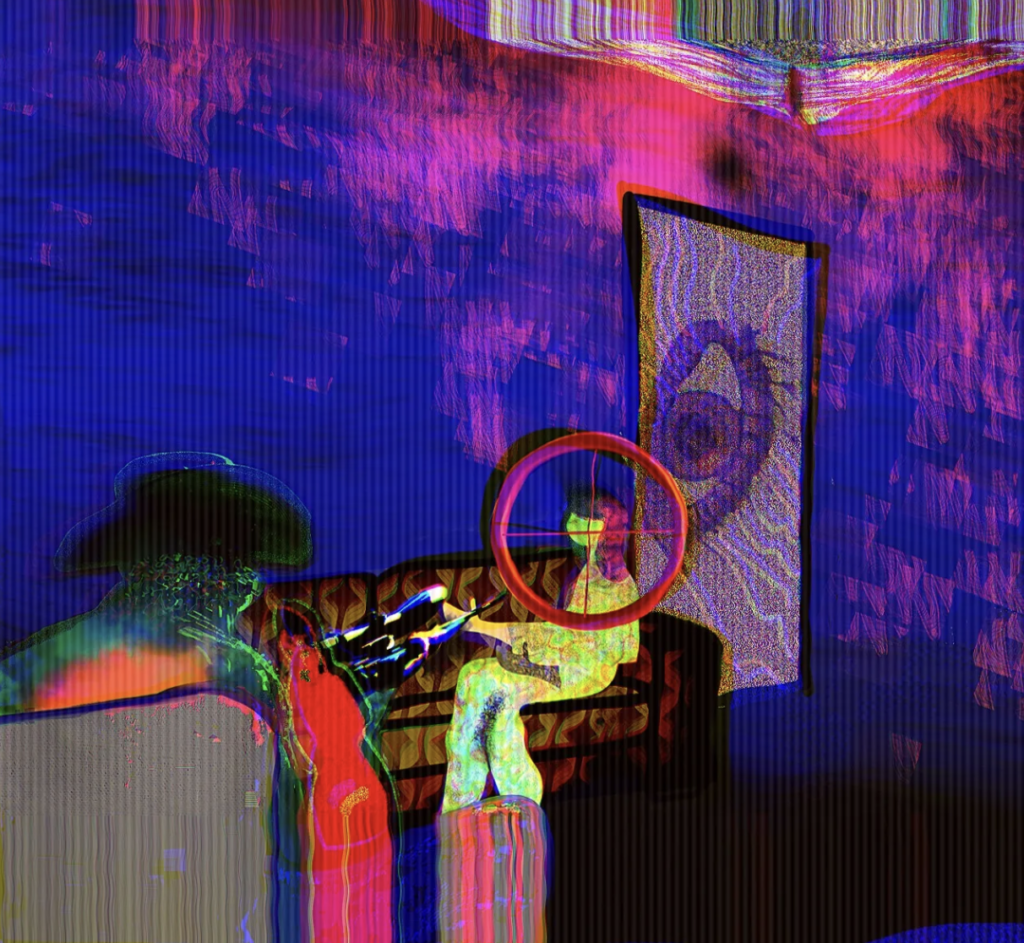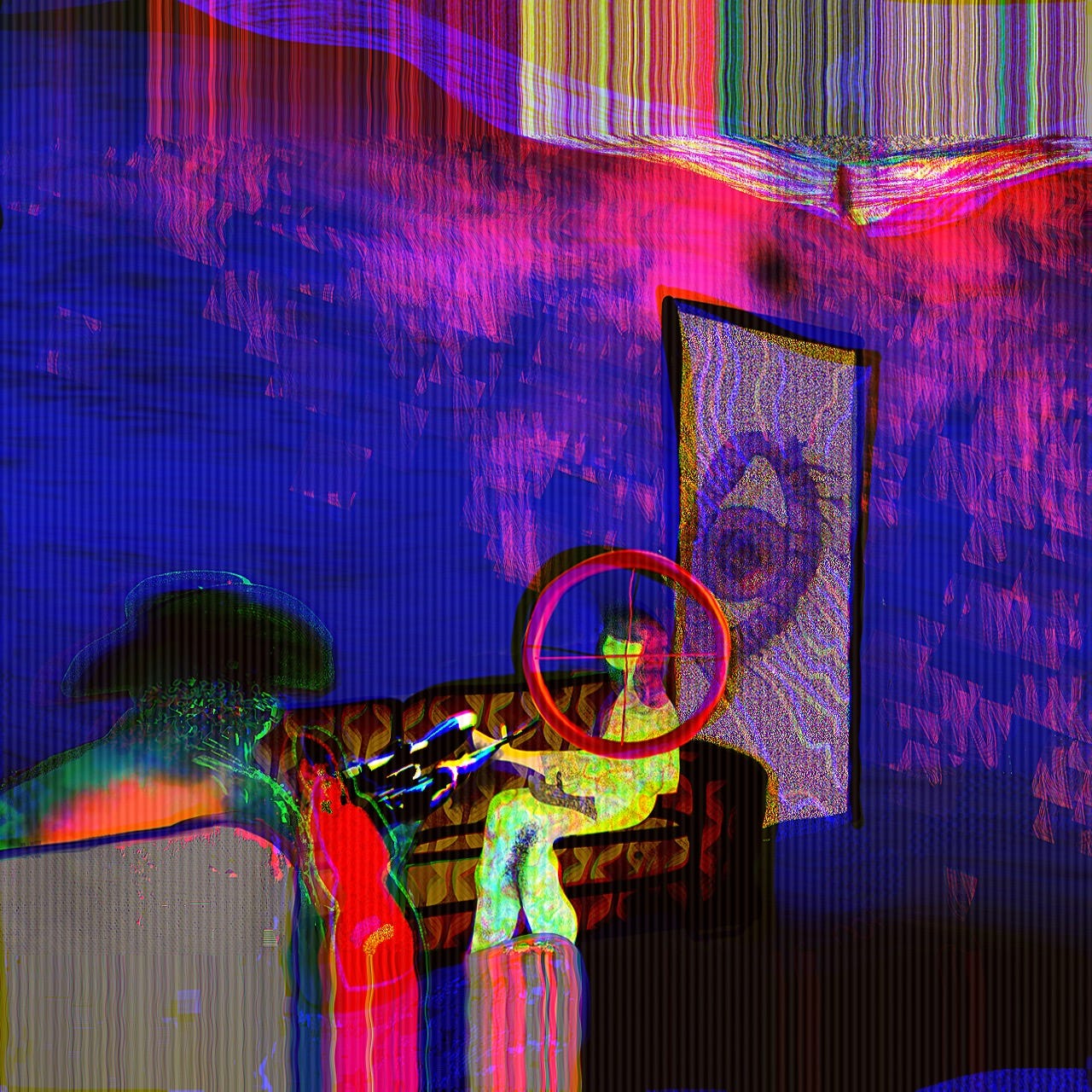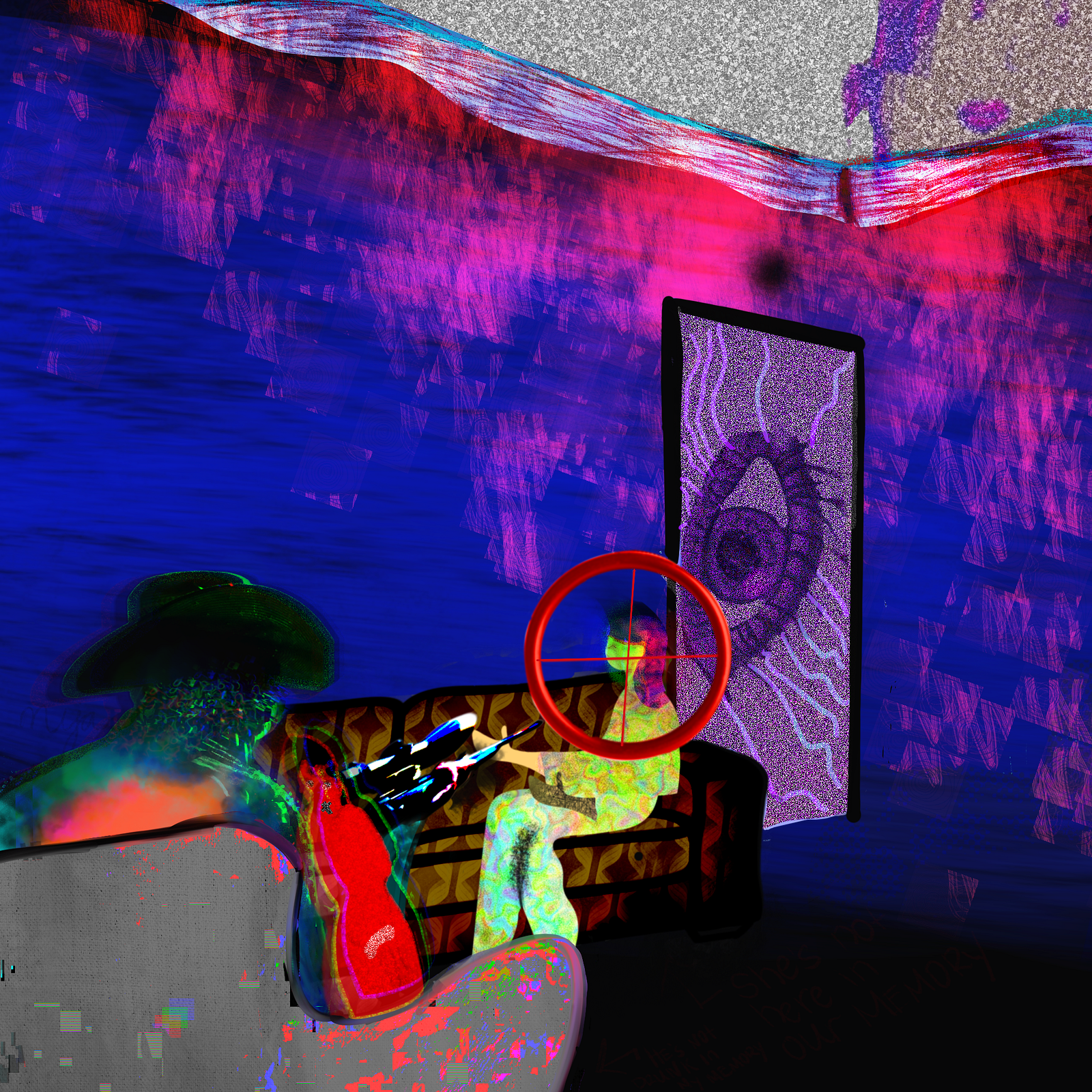
#faultymemories
trigger warning: DV, rifle mention

The familiar sound of my father’s voice echoed through our small house, “Mija, ven para acá. Come sit with your papi, por favor.”
As a young girl, I always felt a sense of warmth and comfort around my dad. “Okay, Papi!” I piped back, quickly making my way into our timeworn living room, where the TV was tuned to a Spanish channel and flannel-patterned couches adorned the worn carpet.
He was holding something that sparked my curiosity — a toy, unfamiliar, and tantalizingly so. It bore a strange resemblance to the form of a miniature telescope, its surface sleek and brown, reflecting the dim light that streamed in through the half-closed blinds.
I clambered onto his lap, my child-like innocence oblivious to the fact that it was far from a toy. He was cradling a rifle, its scope now an object of fascination for my four-year-old self.
Across the room, I saw Mami, framed within the sights of the scope. “Mami’s so close, yet so far,” I exclaimed with a thrill only a child could muster.
My mother’s voice cut through the air, a hushed plea woven into a single phrase. “Jessica, por favor ven para ca. Please, come here.” But I resisted, choosing the allure of the scope over the soft call of my mother. Even my father’s dismissal of her concerns — “Dejala! Leave her be,” — did nothing to subdue my curiosity. I was too young to grasp the panic in her eyes, or understand why I was a tug-of-war rope between my parents.
Her eyes, filled with the silent distress of a thousand oceans. Despite her attempts to lure me away, it took the promise of candy to sway me to her side.
Within the next 10 minutes, my grandpa arrived at our house. His presence brought an abrupt change to the evening. I rushed into his open arms, greeting him with an enthusiastic, “Abuelito! Grandpa!”
He scooped me up, and with a swift about-face, we descended the front steps. As we navigated the neglected front yard, confusion replaced my joy as I saw my mother close the front door, my father’s heated words trailing behind her.
Even at the age of four, I knew the implication of this abrupt trip. It was an escape from my father who occasionally drank his “special juice,” transforming into a man whose actions were unpredictable. For a child, his intoxicated state often translated into gifts and kindness, a tantalizing lure that glossed over the underlying harsh reality.
The memory of that night stayed with me, even as we huddled together in my grandparents’ room, its concrete garden wall acting as a shield. And the following morning, we returned home, as if the previous night’s events were simply figments of a nightmare. But the silence about that night hung heavily between us, and within me, it evolved into a haunting memory.
It was a memory that would shape my perception of relationships and resilience, as I navigated the challenges of growing up with a father who could be both loving and dangerous.
It took me nearly 25 years to ask my mother about that night. Her nonchalant response belied the gravity of the situation: my father, in a drunken haze, had threatened her with the rifle. She spoke as if this were an everyday occurrence, a fact of life to be dismissed without further thought.
“I can’t believe you remember that,” she sighed, sorrow clouding her eyes. “I’m sorry that you do.”
“I’m sorry, too,” I whispered back, the weight of the past pressing down upon us both.
